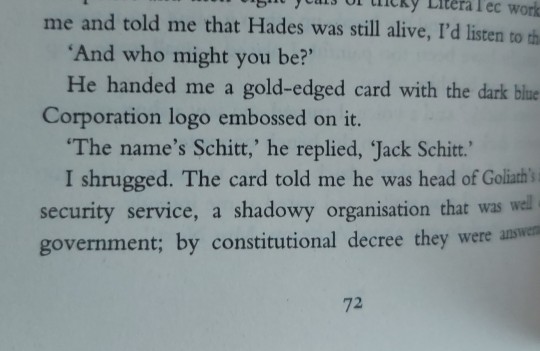#the eyre affair
Text
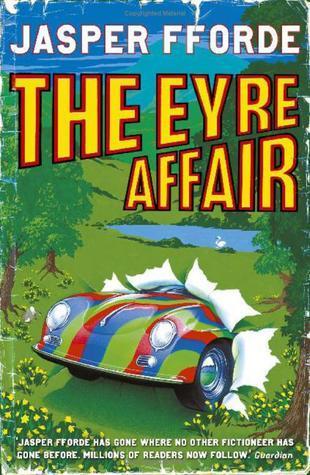
vote YES if you have finished the entire book.
vote NO if you have not finished the entire book.
(faq · submit a book)
18 notes
·
View notes
Text

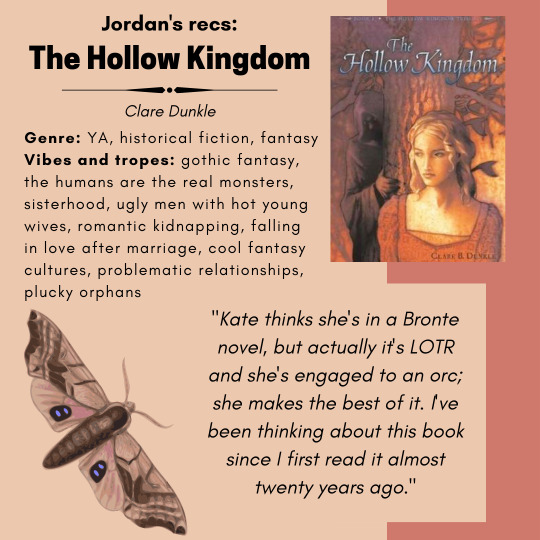
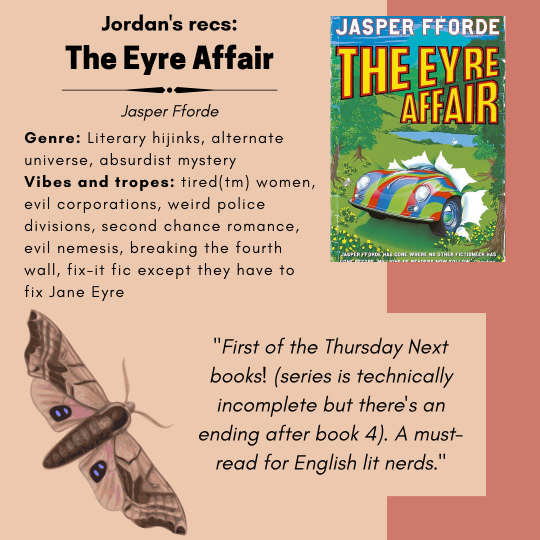
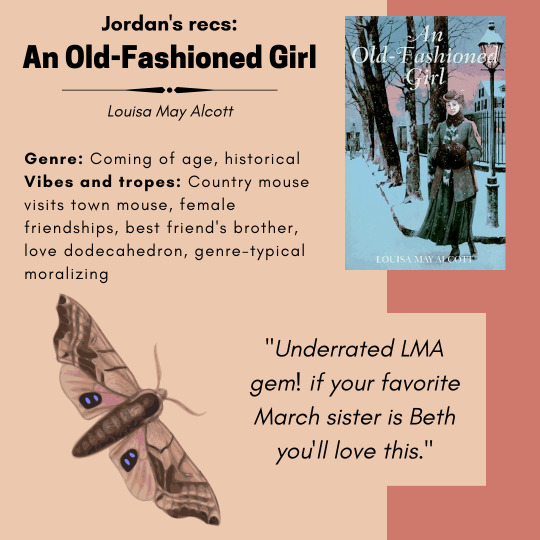

Reccer Spotlight: Jordan!
The Hollow Kingdom
The Eyre Affair
An Old-Fashioned Girl
The Scorpio Races
With literary, historical, and fantasy vibes, Jordan's recs are here to delight your inner Bella Swan. Full text available in their tab of the Bella’s Book Club Summer Reading ‘23 Reclist!
more info on BBC Summer Reading 2023
more Reccer Spotlights
#reccer spotlight#summer reading#summer reading challenge#booklr#book club#bella's book club#book recs#the hollow kingdom#the eyre affair#an old-fashioned girl#the scorpio races
23 notes
·
View notes
Text

Jane Eyre , Charlotte Bronte.
#quotes#short quotes#book quotes#romantic quotes#jane eyre#the eyre affair#Bronte#mr rochester#Jane and Rochester
158 notes
·
View notes
Text
The Eyre Affair – Jasper Fforde
“Jasper Fforde has gone where no other fictioneer has gone before” claims The Guardian in the front cover endorsement. What a load of genetically re-engineered dodo crap. Who amongst us hasn’t day-dreamed about going into the books we love and meeting our favourite characters? That’s where it all starts for us “fictioneers”. The first stories we tell are clunky re-imaginings of the things that speak to us, we get enraptured by a story and it motivates us to share that story too. It’s a tale as old as human communication. Oral and written tradition is just this, sharing stories, and over time we add parts of ourselves to the narrative and mould it to better fit us. It’s how we learn to tell our own stories, by first copying the things we love. “Imitation is the sincerest form of flattery that mediocrity can pay to greatness”, or so it has been said.
Lately I’ve been attempting to shift my time-use away from consumption and towards creation. I had found myself trapped endlessly scrolling social media, or watching stuff I don’t care about just to have something on the telly. I felt like I was wasting my time and getting nothing out of any of it. But the real kick in the arse was watching my kids emulate that same behaviour, and being unable to connect with them on any conversational level for the two days a week they live with me because they’d rather hide themselves away in a hole of Sonic memes from TikTok via Gacha Life via YouTube shorts. And how could I blame them? I was in my own hole of complaining about Formerly-Known-As-Twitter drama and voyeuristically watching old men build things with their hands (my guilty pleasure). None of us were engaged, and all of us were miserable. So I turned off the TV, deleted half the apps from my phone and YouTube from my Switch, and loaded up on art supplies from the dollar store, ready to set an example and give us all something to bond over. And it worked! (Mostly. As I’m writing this, my daughter is watching Spirit Rangers on Netflix and I’m listening to music with my headphones on. Lets just call it parallel play, alright?)
By the end of the first day without the addictive pull of easy dopamine machines, both of my kids had written multi-thousand word short stories. My daughter (10yo), who’s special interest is kid horror like Poppy Playtime and Five Nights at Freddy’s, wrote about a little girl with a traumatic past who solves puzzles and befriends the big scary monsters. My eldest (12yo) on the other hand is big into anime, their favourites right now being My Hero Academia and Tengoku Daimakyo. They wrote a character driven isekai turned reverse-isekai slice of life, naturally. Given the freedom to write whatever they wanted without guidelines from teachers, both of them re-told their own favourite stories with a personal flair. This is how we learn to tell stories, it’s how we learn anything really, through repetition. Just like how babies learn to speak by imitating the sounds its parents make until it learns meaning and context, in imitating the stories we love, we learn story structure, flow, framing, technique, effective use of dialogue and thematic meaning. It’s not the only way we learn, of course, we get taught the nuts and bolts of writing in school, and some take that all the way through university in order to perfect their craft, but I think that’s all polish. The people who study writing are the people who have a passion for the craft they’ve learned through personal experimentation, and it’s passion that is key for motivation.
In response to a recent live stream question about encouraging a creative design environment in the classroom, Adam Savage (of Mythbusters fame) said “New skill acquisition, for me, has always been based on desire.” Without the desire to emulate, without the love of a story or stories, our writing is dead before it’s even born. Writing is a slog sometimes, it doesn’t come easily to any but the luckiest few, so we need the love of the influence to fuel the work. I’m not just talking about the derivative copy cat stuff we all practice on, even the most original novels have influence. The reason we have genres of literature is because of the influence of authors who came beforehand. In 1818 Mary Shelley publishes Frankenstein, in 1886 Robert Lewis Stevenson publishes Dr Jekyll and Mr Hyde, in 1896 H.G. Wells publishes The Island of Dr Moreau. We have science fiction as a genre because authors read science fiction stories and said “I want to write that too.”
The world Fforde has created in The Eyre Affair is one that those of us who were teased for being bookworms as children would long for. It’s a world in which people wear their love for their favourite stories proudly on their sleeves. Where literature is so important that the British Government have a Special Operations group dedicated to preventing book crimes. Imagine if people cared that much about literature in real life? Could you imagine people door-knocking and handing out pamphlets to argue their theories of who wrote Shakespeare? People changing their names and their dress to honour their love of poet John Milton? Imagine hundreds of people torch and pitchfork protesting over the possibility of Jane Eyre being changed. This all sounds hauntingly familiar, actually. There is one place in the real world where people have such strong opinions of their favourite stories: fanfiction.
Savage continues: “It’s frankly within pop-culture you’re often going to find a lot of intersection of desire for a thing.” Our modern internet is lousy with pop-culture, it’s incredible just how pop our culture has gotten. It drowns out any culture that isn’t pop by smothering it in mounds of double extra servings of pop. Our pop is so pop we had to create hyper-pop to contain it, another magnitude added to the pop-Richter scale, and boy oh boy, is there desire for it. I have many criticisms about fanfic, both the art and the culture, but I’m not going to go on a tirade here. What’s important is that people are doing it. They’re taking the stories they love and expanding upon them, putting their own spin on their favourite characters and creating something new and interesting out of it. As Savage says “I personally don’t care where somebody gets interested in creating something, I just want the act of creation to occur.”
The Eyre Affair is a love letter to the stories that compel Fforde, like Arthur Conan Doyle’s Through the Magic Door made narrative. Published in 1907, Doyle’s collection of essays is adamant that popular fiction is vital to creativity, so this isn’t new age thinking. What is new is that we have more accessible places to share with each other, to create community around the things we love, and yet it still feels so closed off. When we say fanfic we think of a subsection of the internet filled with wierdos, from Trekkies and X-philes in the 90’s, to whatever is popular in fanfic today, I don’t know, what are you into? Is it Gideon the Ninth? Y’all still doing One Direction? Whatever the case, it’s delegated to a shadowy basement corner filing cabinet and forgotten by the rest of the literary world, and that’s a shame, because it is often where our most base fantasies as readers play out.
“Gone where no other fictioneer has gone before”? Fforde goes where all of us go, that’s what makes this book so compelling, only he does it in public where everyone can see.
5 notes
·
View notes
Text
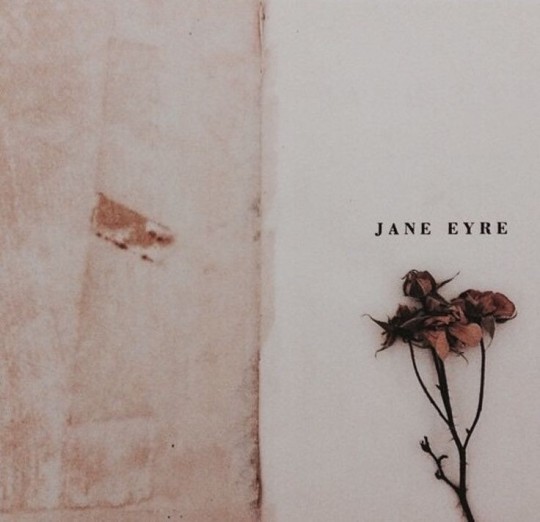
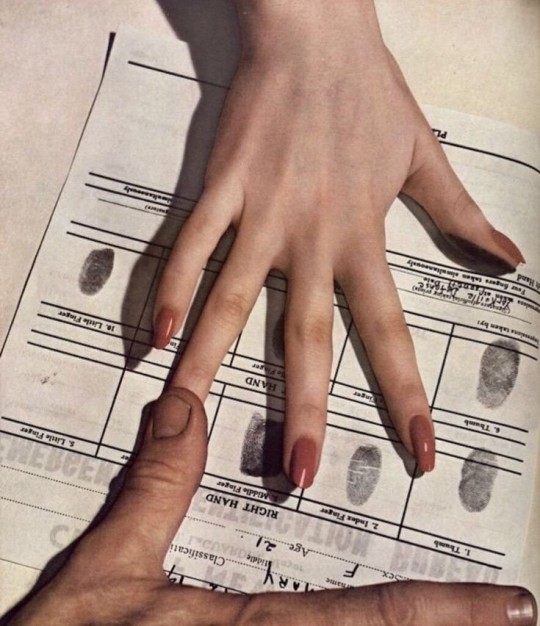

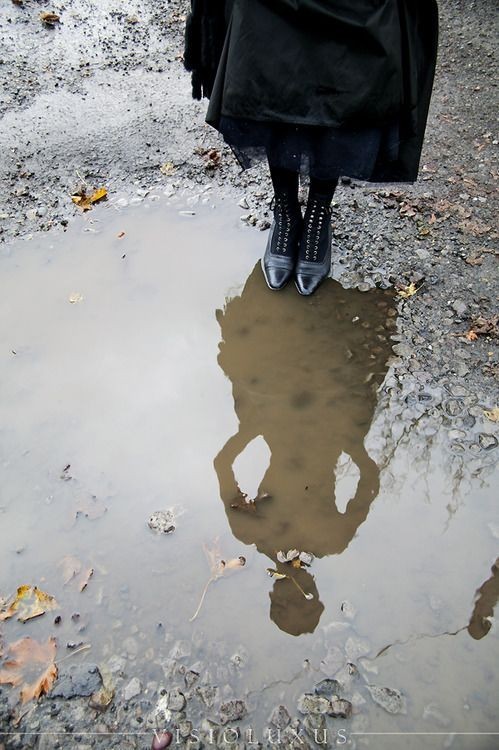
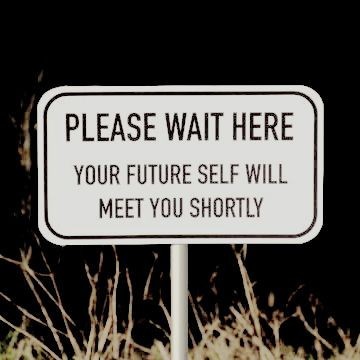
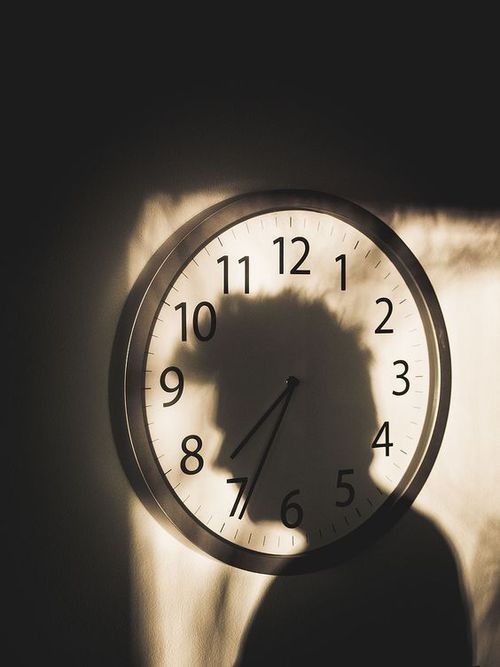



Books Read in 2022: The Eyre Affair by Jasper Fforde
“Governments and fashions come and go but Jane Eyre is for all time.”
29 notes
·
View notes
Text
So I'm reading The Eyre Affair, and nobody tell me if I'm right, but given a few of the clues here and the general haphazardness of the timeline in a world with ChronoGuards... I think it's entirely possible that Thursday's father is Sherlock Holmes. It's distinctly possible.
3 notes
·
View notes
Text
Week 2: 7/16/22 - 7/22/22
This week I consume Better Off Dead, Dimension 20, Taskmaster, Leverage, Burn Noticed, Futurama, Thursday Next, Stephen King, What We Do in the Shadows, and Homestuck Made This World.
Welcome to another edition of Weekly Consumption, where I share all the media I’ve consumed in a week.
You’re welcome.
Saturday, July 16th 2022
Movie: “Better Off Dead…”
I wrote an article recently for Looper about the cast of “Risky Business.” I had only seen the movie once as a teenager and it was heavily edited for television. So I watched it again and thought it was pretty good. But it…
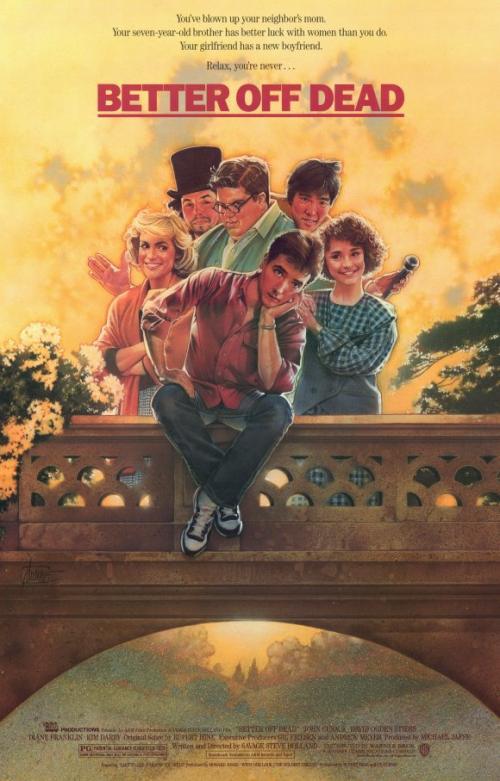
View On WordPress
#better off inside#burn noticed#curtis armstrong#david lee roth#dimension 20#dropout#futurama#homestuck#homestuck made this world#jasper fforde#john cusack#just a gigolo#leverage#movies#risky business#stephen king#taskmaster#the dark tower#the eyre affair#the nigerian job#the seven#thursday next#what we do in the shadows#wolves of the calla
4 notes
·
View notes
Text
Mr. Rochester king of gaslight gatekeep girlboss
#jane eyre#mr rochester#lmao I already knew the whole twist from reading the eyre affair years ago#so it was pretty funny/disturbing reading about him just like#lying to her face constantly#anyway enjoying the book haha
132 notes
·
View notes
Text

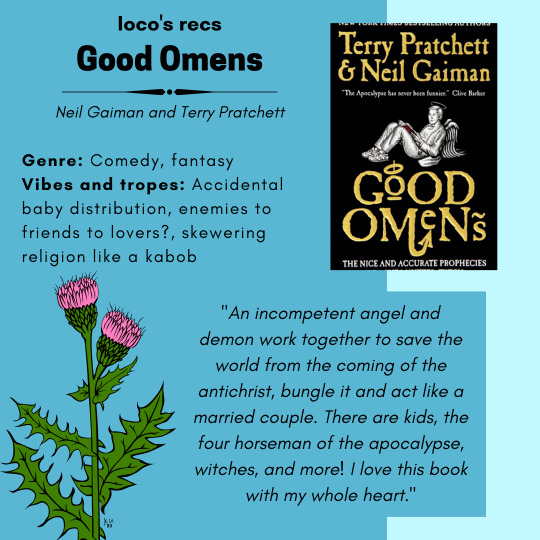


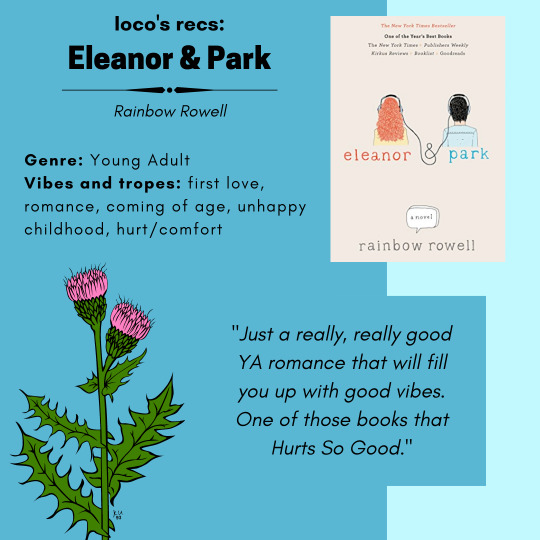

Reccer Spotlight: Ioco!
Good Omens
The Eyre Affair
Dogsbody
Eleanor and Park
And I Darken
Ioco's recs are all different types of throwback: we've got history, time travel, modern classics, and coming-of-age. Full text available in their tab of the Bella’s Book Club Summer Reading ‘23 Reclist!
more info on BBC Summer Reading 2023
more Reccer Spotlights
#reccer spotlight#summer reading#summer reading challenge#book recs#booklr#book club#bella's book club#good omens#the eyre affair#dogsbody#and I darken
16 notes
·
View notes
Text

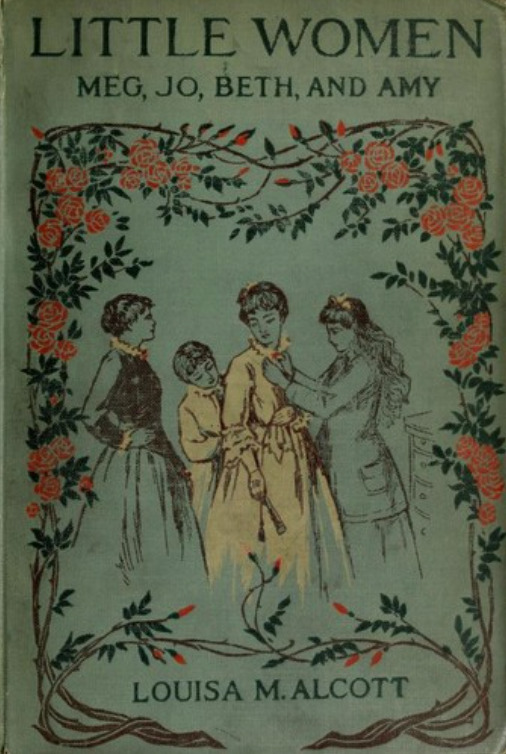
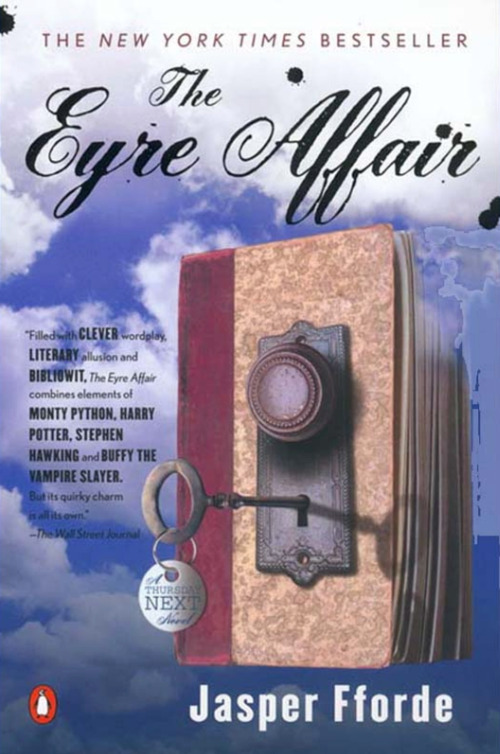

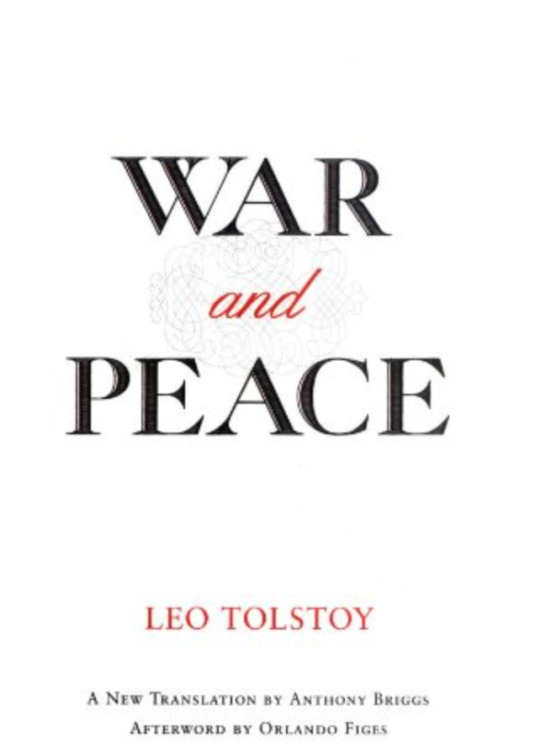
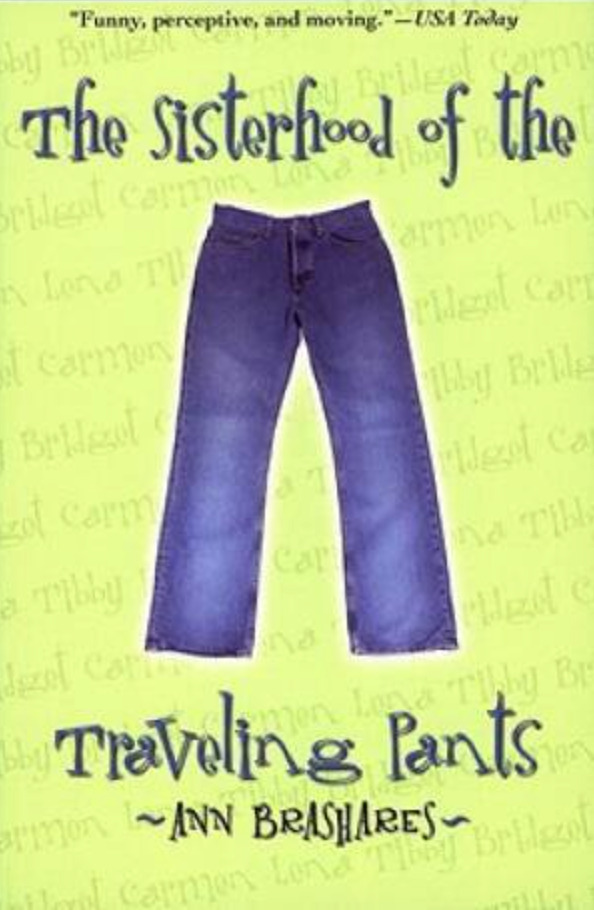
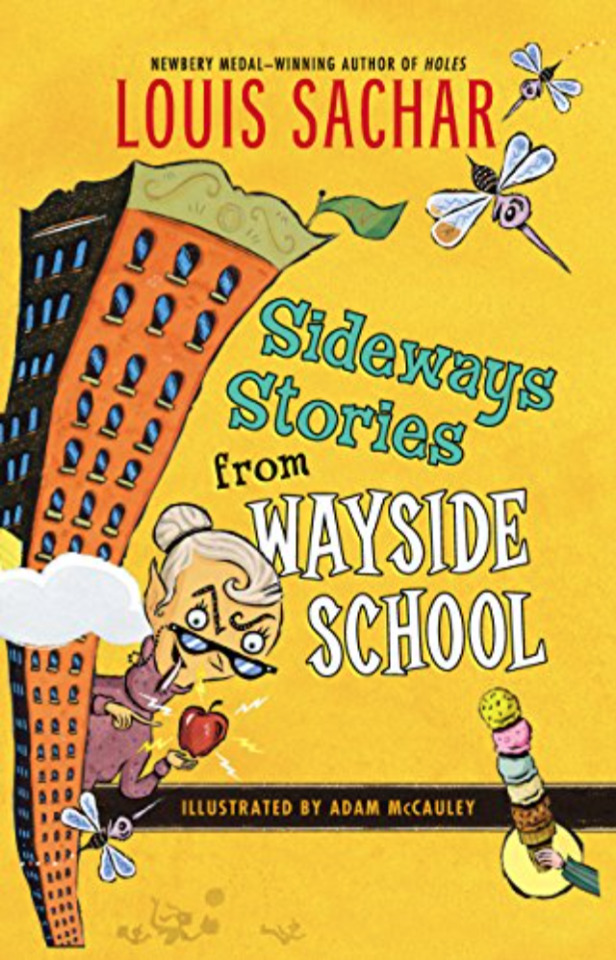


I wasn't officially tagged but I'm sharing my top 9 books anyway because why not. Really I am a patchwork of so many hundreds of books that I've read over the years, and it's hard to choose just nine. So none of these rankings are definitive– except A Tree Grows in Brooklyn, my #1 most-beloved of all time <3
If anyone else wants to do it, please do! I'd love to see your lists!
#about me#this Little Women and Christmas Carol are not the covers i grew up with but i wish! look how pretty!#The Bad Beginning & The Eyre Affair & Sisterhood of the Traveling Pants are each representing their series' places in my heart
5 notes
·
View notes
Text

Currently Reading: The Eyre Affair by Jasper Fforde
Meet Thursday Next, literary detective without equal, fear or boyfriend.
There is another 1985, where London's criminal gangs have moved into the lucrative literary market, and Thursday Next is on the trail of the new crime wave's MR Big.
Acheron Hades has been kidnapping certain characters from works of fiction and holding them to ransom. Jane Eyre is gone. Missing.
Thursday sets out to find a way into the book to repair the damage. But solving crimes against literature isn't easy when you also have to find time to halt the Crimean War, persuade the man you love to marry you, and figure out who really wrote Shakespeare's plays.
Perhaps today just isn't going to be Thursday's day. Join her on a truly breathtaking adventure, and find out for yourself. Fiction will never be the same again...
3 notes
·
View notes
Text
so miss temple, latterly jane’s companion, married a man ‘almost worthy of such a wife’ and was then described as being ‘lost to [jane]’. now fellas. fellas.
#jane eyre#rae (re)reads jane eyre#I’M NOT SAYING ANYTHING I’M JUST SAYING#it would be just like jane ‘married a guy who had an attic wife’ eyre to enter into a fantastically doomed student/teacher affair#i’m saying this as someone with a major student/teacher squick
2 notes
·
View notes
Note
A'ight, what is it about Anne Brontë and Tenant of Wildfell Hall? I keep seeing stuff about how Anne is the unproblematic Brontë sister and that's what kept me away from her books lol
*kracks knuckles* All right. So, remember how the Brontë sisters wrote three novels simultaneously? Charlotte wrote The Professor, Emily wrote Wuthering Heights, and Anne wrote Agnes Grey. The two latter got picked up by publishers, but The Professor was rejected, so Charlotte finished up Jane Eyre and sent it to a publisher, who accepted it immediately and had it published before Wuthering Heights and Agnes Grey got printed. All three of them wrote under pen names (Charlotte was Currer Bell, Anne was Acton Bell, and Emily was Ellis Bell), because they knew their novels were, say, a little controversial, and that if it was known they were women, their characters would be judged and immediately associated to their works. So needless to say, they were VERY supportive of each other, because they knew no one else would. (Their father was also supportive, but they published their novels without telling him at first but once they did, he was very encouraging, thankfully.)
It's easy to see why Jane Eyre or Wuthering Heights would be considered controversial in their day (they still kind of are today given the Discourse(tm), lol). Agnes Grey, while it didn't do as well as JE and WH, was criticized for being a little too... let's say, honest about a governess' day-to-day life, when Anne wrote it drawing from her own experiences as a governess. The thing with Anne is that people find her stuff a little moralizing, but it was in her best interest to present Agnes as virtuous given how she made little secret of how poorly governesses could be treated, since it wasn't that rare they'd be accused of profiting from the families they were employed by, when there were abuse cases more often than not.
Then The Tenant of Wildfell Hall came out, and that's when criticism started to fly. May Sinclair (an early 20th century suffragist) would later write that the scene where Helen (the main character of the novel) slams her door to her husband's face had a reveberation that was heard throughout England. It's the story (in case you don't mind getting spoiled for a 150-year-old book) of a lady who marries a Victorian fuckboy called Huntington, ends up in an abusive household where her only comfort is her son, and once she realizes that her husband is becoming a bad influence on her child, she leaves him and manages to hide in a house that her brother is willing to rent to her, while she tries to earn a small living by painting. And people lost their shit, because according to them, Helen was a bad woman for leaving her husband, even though she did it to, you know, get her son out of a toxic environment. If Charlotte criticized anything about the novel, it's that she thought some aspects of Huntington were depicted too graphically, but they mostly had to do with his alcoholism and his adultery (this is important: those critcisms have nothing to do with Helen, or how Tenant is shade thrown at Charlotte and Emily's works). That might have been because Anne got some inspiration for Huntington from Branwell, their brother, who was also an alcoholic and got fired from his job as a tutor for having an affair with the lady of the house. Charlotte was pretty fed up with Branwell at that point, and while Emily was the one who got along with him best, they had some pretty big fights because she was in no way a pushover (so the belief that Charlotte and Emily idolized Branwell while Anne was the only one who saw through his BS is also, incidentally, BS).
So, why did Charlotte stop Tenant from being re-printed after Anne's death? Simply put, the criticism against it was getting worse, and people were defaming Anne's character because of it. Charlotte had had her own share of troubles with Jane Eyre - she dedicated the second edition to William Makepeace Thackeray (of Vanity Fair and Barry Lyndon fame) because he was her favorite author, without knowing his wife was institutionalized after suffering from severe post-partum depression. And that led, of course, to people speculating that Jane Eyre was semi-autobiographical, and that Charlotte was Thackeray's mistress. (I mean, it *is* semi-autobiographical, but Thackeray had nothing to do with it.) So she was understandably a little on edge, and while she edited Agnes Grey for a reprinting after Anne's death (given there were a lot of spelling mistakes and the like in the first printing), she asked for Tenant to not be reprinted to protect her sister's memory.
So no, Charlotte did not block Tenant from being as well-known as Wuthering Heights or Jane Eyre because she was "jealous", or because she was mad that Anne was "throwing shade" at her and at Emily. She was protecting her sister's reputation, because she wasn't even alive anymore to speak for herself and mount any kind of defense, and that was while Charlotte's own reputation was under fire, after she had lost the two people who had supported her the most - Emily died in 1848, and Anne in 1849. To try to pit these sisters against each other, when two of them died far too young and the surviving one had to pick up the pieces and defend them against public opinion - it is simply distasteful, and it needs to stop.
#Anne Brontë#Charlotte Brontë#Emily Brontë#the tenant of wildfell hall#jane eyre#agnes grey#wuthering heights#literature#english literature#also: tenant is great and you should definitely read it
449 notes
·
View notes
Text
The Tenant of Wildfell Hall - Chapter 38, “The Injured Man”
This chapter - the one where Lord Lowborough learns about Annabella and Huntingdon’s affair - is extremely interesting to me in relation to some of the things I learned in an undergrad history on Britain. (CW: Discussion of sucide.)
Starting in the 1700s, and continuing into the period when The Tenant of Wildfell Hall was written, there was a strong push among the growing middle classes for moral reform, and one of the things it targeted were vices that were specifically seen as common ones of the upper class: gambling, drunkenness, duelling, and suicide. The last one seems strange to the modern eye, but one element of its context was the image of the aristocrat who got badly into debt through the first three vices and killed themselves to escape disgrace (‘disgrace’ meaning ‘behaviour considered unfitting to the upper class’, like having to do work to earn money), to which the middle class were in effect responding “what, so you think an honest day’s work is literally a fate worth than death?”) The rest of the objection to it was the same as the objection to duelling: that both treated the balue of human life lightly. This was a sharp turn away from the older upper-class culture: the idea of suicide in dire straits as a virtue went back to Ancient Rome (and earlier, but I think Ancient Rome was the big reference point), and duelling had long been considered a necessary hallmark of the honourable man.
Lord Lowborough’s part in The Tenant of Wildfell Hall (which is deeply within the 1800s-British tradition of moral-didactic literature) is that of a man who has been tempted by all of these vices (as well as by drug abuse), succumbed to some, but ultimately refused all of them, and this chapter is the culmination of that. Earlier in the book Huntington laughingly tells of his friend’s earlier struggles and temptations, and how Huntington and the rest of their club urged him on in them and tempted him back whenever he attempted to quit: how Lowborough was first financially ruined by his gambling addiction, and then (in a striking example of addiction displacement) turned first to alcohol and then, as a displacement of alcohol, to laudanum to numb his unhappiness. He had ultimately managed to quit both, and married Annabella in hopes that marriage and domestic happiness could keep him on the straight and narrow. And he does actually stick with quitting them.
This chapter is the conclusion of that, and stands out for how different it is from the treatment of duelling in other (relatively) contemporary novels. In Sense and Sensibility, there’s a mention of Colonel Brandon fighting a duel with Willoughby over Willoughby’s seduction and abandoment of his ward; Elinor Dashwood does not exactly approve, but neither does she strongly object, and it narratively adds a certain romantic and dramatic gloss to Colonel Brandon. It is not treated as a vice, but as a difference between female/male and civilian/soldier values (and moderated by the fact that it waa apparently a matter of form, and Brandon was not trying to kill him, as indicated by the lack of injury):
“we met by appointment, he to defend, I to punish his conduct. We returned unwounded, and the meeting, therefore, never got abroad.”
Elinor sighed over the fancied necessity of this; but to a man and a soldier, she presumed not to censure it.
In Jane Eyre, Rochester also mentions, in the past, having a duel with the man who had been sleeping with his mistress Céline Varens. As with Colonel Brandon, this isn’t regarded as praiseworthy, but it does give him a more dramatic figure.
“Next morning I had the pleasure of encountering him; left a bullet in one of his poor etiolated arms, feeble as the wing of a chicken in the pip, and thought I had done with the whole crew.”
In contrast, The Tenant of Wildfell Hall has Helen effusively praise Lowborough for refusing to fight a duel, in the teeth of his friends’ condemnation of that decision as weak and cowardly. It’s not mildly tut-tutting at duelling: it’s flipping the aristocratic script by presenting refusal to duel under circumstances that would normally prompt one as actively morally courageous.
[The first speaker is Hattersley, one of Lowborough and Huntingdon’s friends.]
“If you’ve the heart of a man, it would be the very ticket for you. It’s just this, my lad,” he continued, rather lowering his voice, but not enough to prevent me from hearing every word he said, though the half-closed door stood between us: “I think you’re an ill-used man—nay, now, don’t flare up—I don’t want to offend you: it’s only my rough way of talking. I must speak right out, you know, or else not at all; and I’m come—stop now! let me explain—I’m come to offer you my services, for though Huntingdon is my friend, he’s a devilish scamp, as we all know, and I’ll be your friend for the nonce. [This is Hattersley offering to be his second in a duel.] I know what it is you want, to make matters straight: it’s just to exchange a shot with him, and then you’ll feel yourself all right again; and if an accident happens—why, that’ll be all right too, I daresay, to a desperate fellow like you. Come now, give me your hand, and don’t look so black upon it. Name time and place, and I’ll manage the rest.”
“That,” answered the more low, deliberate voice of Lord Lowborough, “is just the remedy my own heart—or the devil within it, suggested—to meet him, and not to sever without blood. Whether I or he should fall, or both, it would be an inexpressible relief to me, if—”
“Just so! Well then—”
“No!” exclaimed his lordship, with deep, determined emphasis. “Though I hate him from my heart, and should rejoice at any calamity that could befall him—I’ll leave him to God; and though I abhor my own life, I’ll leave that, too, to Him that gave it.”
“But you see, in this case,” pleaded Hattersley—
“I’ll not hear you!” exclaimed his companion, hastily turning away. “Not another word! I’ve enough to do against the fiend within me.”
“Then you’re a white-livered fool, and I wash my hands of you,” grumbled the tempter, as he swung himself round and departed.
“Right, right, Lord Lowborough,” cried I, darting out and clasping his burning hand, as he was moving away to the stairs. “I begin to think the world is not worthy of you!”
Lowborough’s rejection of duelling is also a rejection of suicide (“and though I abhor my own life, I’ll leave that to Him that gave it”), and this rejection in spite of strong temptation is further emphasized:
I lay awake the greater part of [the night] listening to his heavy step pacing monotonously up and down his dressing-room, which was nearest my chamber. Once I heard him pause and throw something out of the window with a passionate ejaculation; and in the morning, after they were gone, a keen-bladed clasp-knife was found on the grass-plot below; a razor, likewise, was snapped in two and thrust deep into the cinders of the grate, but partially corroded by the decaying embers. So strong had been the temptation to end his miserable life, so determined his resolution to resist it.
Helen’s internal thoughts give further praise of Lowborough, and condemn the social values that make being cheated on a greater source of shame and condemnation for a man than cheating is:
"That man," I thought, "is an object of scorn to his friends and the nice-judging world. The false wife and the treacherous friend who have wronged him are not so despised and degraded as he; and his refusal to avenge his wrongs has removed him yet farther beyond the range of sympathy, and blackened his name with a deeper disgrace. He knows this; and it doubles his burden of woe. He sees the injustice of it, but he cannot bear up against it; he lacks that sustaining power of self-esteem which leads a man, exulting in his own integrity, to defy the malice of traducing foes and give them scorn for scorn—or, better still, which raises him above earth's foul and turbulent vapours, to repose in Heaven's eternal sunshine. He knows that God is just, but cannot see His justice now: he knows this life is short, and yet death seems insufferably far away; he believes there is a future state, but so absorbing is the agony of this that he cannot realize its rapturous repose. He can but bow his head to the storm, and cling, blindly, despairingly, to what he knows to be right. Like the shipwrecked mariner cleaving to a raft, blinded, deafened, bewildered, he feels the waves sweep over him, and sees no prospect of escape; and yet he knows he has no hope but this, and still, while life and sense remain, concentrates all his energies to keep it. Oh, that I had a friend's right to comfort him, and tell him that I never esteemed him so highly as I do this night!"
I feel that Anne Brontë was trying to make women’s rights - specifically, the right to 1) be treated as morally and intellectually equal to men, and not as either angels to inspire or delicate flowersto be preserved; 2) be taught the dangers of a bad marriage fully and frankly in order to avoid them; 3) leave an abusive marriage, and to have forms of abuse other than physical abuse recognized as abuse, and to keep custody of their children on leaving such a marriage; and 4) have some way of earning a respectable independent living upon leaving such a marriage - an integrated part of the wider moral reform movement, and both those threads are strongly present throughout her book. (In some respects this succeeded, at least insofar as the suffrage movement and the temperance movement were very closely tied together. It’s not always remembered enough that a huge element of the temperance movement was the right to not have your husband be drunk all the time (often leading to violence) and waste all your money.)
#the tenant of wildfell hall#wildfell weekly#anne bronte#helen graham#lord lowborough#cw suicide#tw suicide
25 notes
·
View notes
Text
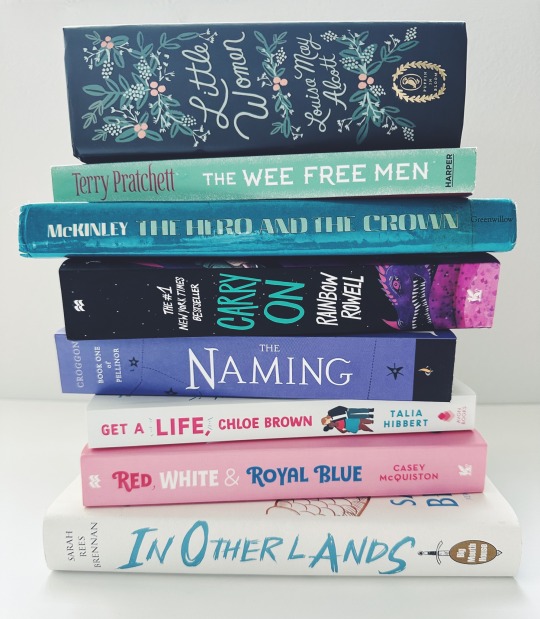
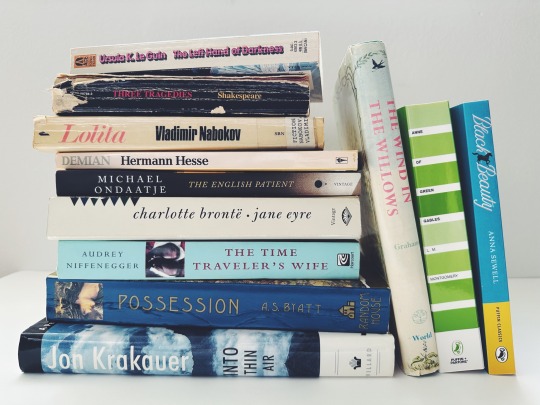
Twenty Books Challenge
Hypothetically, you are only able to keep 20 of your books. Only one book per author/series. So what books are you keeping?
I was tagged by @theinquisitxor and @godzilla-reads - thank you for subjecting me to this torture. 😅
They're all favorites and some have lots of sentimental value (additional thoughts included below).
Little Women (I have several copies of this book, but I selected this lovely edition because it's part of the Puffin in Bloom series)
The Wee Free Men (representing Pratchett and gets me both Tiffany Aching and Granny Weatherwax - my favorite Pratchett leads)
The Hero and the Crown (representing Robin McKinley - and it would be impossible for me to pick a favorite McKinley - so I went with this one because it's one of my all-time favorite covers)
Carry On (one of my most-adored copies of one of my most-adored books - it's signed and dedicated with a Wham reference (!) - and is immensely re-readable)
The Naming (I could get lost in the world of Pellinor forever - it had me at talking horses and all of the descriptions of food)
Get a Life, Chloe Brown (representing Talia Hibbert, I could re-read it forever and feel so seen with the disability rep)
Red, White, & Royal Blue (One of the only books I've re-read multiple times and always puts me in the best mood)
In Other Lands (Original and fun, with characters that have stuck with me)
The Left Hand of Darkness (I have prettier copies, but this is the edition I read and annotated in high school)
Three Tragedies: Hamlet, Macbeth, King Lear (Got this edition at a Scholastic book fair and used it in high school and college - it's annotated and falling apart, but holds lots of memories)
Lolita (Stunning prose and includes one of my all-time favorite quotes)
Demian (I read this book in high school with one of my best friends, and this is the edition that she gifted me, which includes a lovely note from her)
The English Patient (A wonderful friend got this gorgeous edition signed and dedicated for me)
Jane Eyre (Jane and Rochester live rent free in my soul forever, and I love the cover on this one)
The Time Traveler's Wife (This book was so formative and is why I want to time travel solely so I can attend concerts)
Possession (Worth keeping it for the epilogue alone, but also contains one of my favorite quotes)
Into Thin Air (Started my love affair with non-fiction)
The Wind in the Willows (A gorgeously illustrated edition)
Anne of Green Gables (I was tempted to pick The Blue Castle for my Montgomery representation, but had to stick with AOGG for Matthew Cuthbert, and this edition because it's part of the Puffin + Pantone series)
Black Beauty (I read it just a few year years ago, and it started my adult horse girl phase)
Tagging (no pressure, just fun!): @lizziethereader, @aliteraryprincess, @brightbeautifulthings, @freckles-and-books, @thereadingchallengechallenge, @literarymagpie, @mountainmaven, and anyone else that would like to do it!
255 notes
·
View notes
